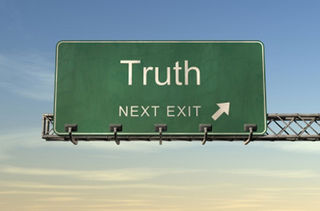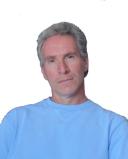Deception
Willful Ignorance and Self-Deception
Whom do we blame more, the willfully ignorant or the self-deceived?
Posted September 10, 2017 Reviewed by Matt Huston

Many of the things we believe about ourselves and our experiences turn out to be false. Sometimes this is due to innocent memory failures or to the lack of needed information. Suppose that Charles believes that he failed his biology test because the professor asked obscure and ambiguous questions. Charles believes this because he doesn’t realize that he got the lowest score out of the 100 students who took the test, and that most people did quite well. If Charles had this information, he would realize that he failed the test because he didn’t study hard enough, or because he’s not very good at biology.
On the other hand, if Charles continues to believe that the test was unfair after seeing the grade distribution, he is either severely challenged in his capacity for rational calculation or he is the perpetrator of willful ignorance. Willful ignorance occurs when individuals realize at some level of consciousness that their beliefs are probably false, or when they refuse to attend to information that would establish their falsity.
People engage in willful ignorance because it is useful. Growing up, my best friend’s parents always had classical music playing in their house. My friend’s father, who was a bit unyielding in his pronouncements and views, would say something about the music such as “that’s Mozart at his best.” His mother, who had a much better musical ear, would wait until he left the room and giggle: “It’s Brahms.” If you asked her, she would claim that her husband knew more about music than her. Deep down, though, I suspect that she knew this wasn’t true, but convincing herself to believe it served to maintain marital harmony as well as her desire to see her husband as a connoisseur of music, wine, poetry, the Yankees—you name it.
People can sometimes be pulled out of their willful ignorance with a modicum of probing, or with contradictory data. It might not be too difficult to convince the couch potato, who claims that exercise is a waste of time, that some form of activity is better than sitting in a recliner, watching TV, and eating copious amounts of junk food chased by Bud Light.
In contrast to this sort of willful ignorance, self-deception occurs when individuals believe false things with complete conviction. Consider a mother who truly believes that her sour-pussed baby is adorable. If you placed her visage-challenged baby in a lineup with cute babies, she would think that hers was the cutest. For real. As another example, consider the sports fan who “sees” the opponent commit a foul in a crucial moment of a basketball game, when in reality, it was the player on his own team, not the opponent, who committed the foul. Because this type of self-deception occurs at the perceptual level, the sports fan actually “sees” the opponent commit the foul, and no amount of replay or argumentation will convince him otherwise.
Often, it is difficult to judge whether somebody is willfully ignorant or truly deluded. A student once dragged her roommate up with her after my class and complained that there was something seriously wrong with my test. The problem was that she had studied for 10 hours and her roommate had hardly studied at all and her roommate did much better. Now, a professor in these circumstances is prohibited from stating the obvious (i.e., “your roommate is smarter than you”), and the roommate, who is probably quite aware of this, is unlikely to say it. In fact, one reason why people maintain erroneous beliefs about themselves is that their friends and relatives enable it. Brutal honesty is socially unacceptable in our culture. If the woman with the sour-pussed baby is a friend, and approaches you to ask whether her newborn baby is adorable, you will probably inhibit your first response, especially if your response is: “So, you’re telling me that the thing in that baby carriage is human?”
The difference between willful ignorance and true self-deception is subtle, but important. Willful ignorance tends to be more adaptive than self-deception. Willful ignorance is a cognitive strategy that people adopt to promote their emotional well-being, whereas self-deception is less controllable and more likely to be detrimental. Although willful ignorance and self-deception sometimes help individuals to avoid unpleasant facts, in the long run, it is usually better to confront reality than to avoid or deny it. Because the self-deceived person fully believes things that are untrue, she has fewer resources for correcting her course when her erroneous beliefs lead her astray.
Consider a highly intelligent young woman who falls in love with a man who is attractive, charming, and according to virtually everyone who knows him, a colossal jerk. The willfully ignorant woman tries to overlook the fact that the man has the intelligence of a tomato, a bad temper, and few ambitions other than to get drunk with his friends. At vulnerable moments, though, perhaps in her dreams, she suspects the truth. By contrast, the self-deceived woman truly believes that the man is intelligent despite appearances to the contrary, that he is actually quite lovable and displays a bad temper only when pushed to the limit, and that he just likes to have fun and will eventually grow out of his adolescent proclivities. Since the self-deluded woman truly believes these things, it will probably take her longer to read the warning signs and terminate the relationship.
The distinction between willful ignorance and self-deception has interesting implications for moral judgment. In general, we probably blame willfully ignorant people more for their actions and attitudes than those we suspect of self-delusion. Suppose that you are annoyed by a friend’s enthusiastic support of a political candidate who you believe is racist, sexist, and lacks any sense of human decency. If you believe that your friend is self-deceived—that he actually believes that the candidate is well-intentioned, has a master plan for the country, and harbors no racial or gender bias—then you may be willing to tell yourself a story such as that your friend is generally a good person who has fallen under some bad influences. But if you believe that your friend actually does know better—that he willfully ignores the candidate’s flaws because he tacitly approves of what you view as the candidate’s bigotry and unsavory character—then you are less likely to excuse your friend’s advocacy.
Of course, if the distinction between willful ignorance and self-deception were this tidy, philosophers would have nothing to write about and psychologists would have less to research. In closing, I will consider one qualification of the distinction I have drawn between willful ignorance and self-deception.
I have suggested that willful ignorance is under the individual’s control to a greater extent than is self-deception. In other words, people could, if sufficiently motivated, change behaviors and attitudes that stem from willful ignorance more easily than they could alter their self-deceived actions. If it is true that self-deception is outside people’s control, then it seems like we should show them some leniency in our moral evaluations.
But what if we blame them for the motives that led them to be self-deceived in the first place? What if we think that they became self-deceived because it served their interests? Consider an example of a father who hits his children because he can’t control his temper, but who truly believes (i.e., is self-deceived) that he does it to teach them a lesson. If the father’s inability to control his temper is obvious and well-known, then his belief that he is just trying to instill discipline is probably not going to garner much sympathy, whether he actually believes it or not. In this case, the father’s belief that he is teaching discipline is just a little too convenient. What this example highlights is that in some instances of moral evaluation, we pay more attention to the motives that we believe drive people’s actions than we do to their awareness of those motives.




